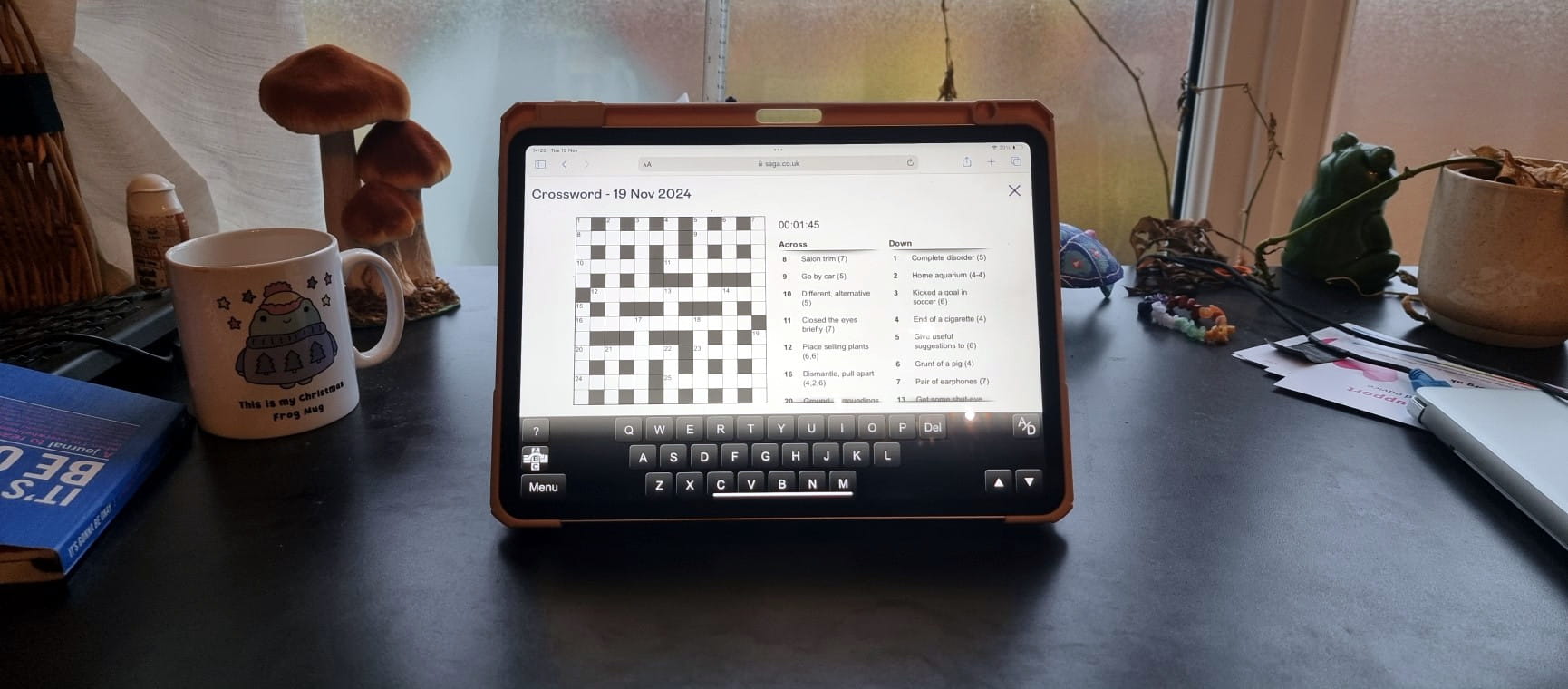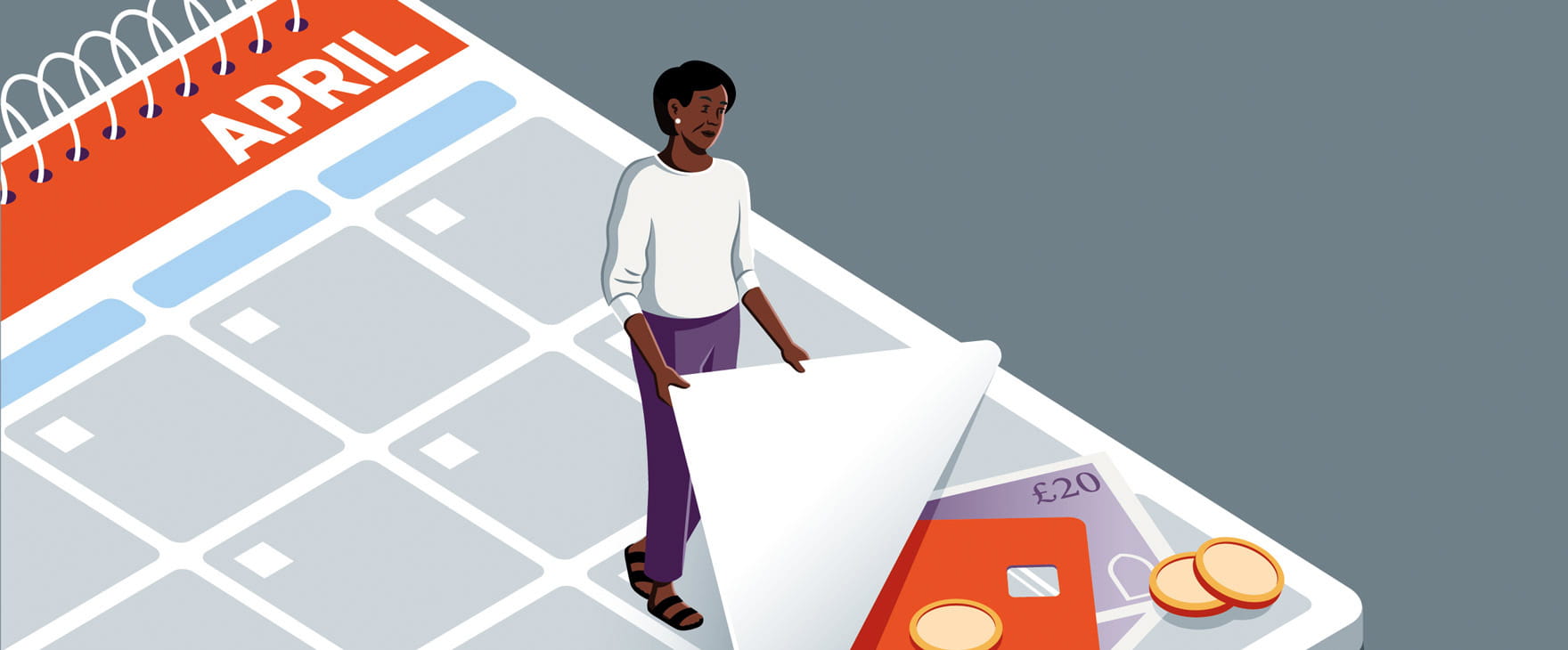Millions of us have experienced ageism. Have you?
As a new survey says a third of people have been discriminated against, we look at how it affects our lives.

As a new survey says a third of people have been discriminated against, we look at how it affects our lives.

Have you been overlooked for a job interview? Are you treated differently at the gym? Or have you felt that doctors seem to think you can’t speak for yourself?
If you’ve suspected ageism is at play, you’re not alone. New research says that a third of over-65s and almost a quarter of people aged 50 to 64 have experienced it.
That’s a shocking 6.1 million people. And when you mix age with gender, race and religion, the figures are even worse.
For example, more than half of people over-50 from minority communities have experienced discrimination because of their race or religion, proving that inequality becomes more stark with age.
Dame Helen Mirren, 79, commenting on the report from Age UK, said: “Ageing happens to us all but, as we get older, life can get tougher. Many will start to be treated differently, which can not only be upsetting, but also unfair. Everybody, regardless of their age, should feel included and valued.”
From being jostled out of the way as you get on the bus to having medical symptoms dismissed as ‘just your age’, discrimination takes many forms.
Even Hollywood superstars aren’t immune: Harrison Ford was ‘de-aged’ – or made to look younger – with CGI for last year’s Indiana Jones and the Dial of Destiny.
There are ways we can fight against ageism too: whether that’s by wearing a miniskirt at 71 or trying to find the right words for getting older.
Studies have shown that ageism can lead to older people not receiving the medical care they need.
A Centre for Ageing Better report found that over-75s with certain cancers are less likely to receive surgical treatment for their condition than those ten years younger.
Saga readers in their 80s and 90s told us they felt excluded by the recent decision to give the RSV vaccine to 75 to 79-year-olds, but not those over 80.
This extends to mental health too, with signs of depression and anxiety being overlooked because they’re assumed to be a result of getting older.
While younger adults are more likely to be referred for talking therapies, older people are more likely to be prescribed antidepressants.
The Centre for Ageing Better has set out some of the damaging impacts of ageism, including the risk that we’ll internalise these ageist attitudes and view ourselves more negatively as a result (which can in turn have damaging effects on health and wellbeing).
There’s also the fact that older people are under-represented in media and advertising, a problem which seems to be getting worse. And a study of the use of language on newspaper and magazine websites in 20 countries, suggested that the UK might be the most ageist country.

But there’s nowhere that ageism manifests itself more frequently than in the workplace. A survey by Totaljobs found that 57 is the average age that people are considered ‘too old’ for jobs by employers.
With ten years to go to State Pension age, that leaves them in a difficult spot. Recently, recruitment company Indeed was forced to make a U-turn when it termed the ages of 45 to 55 ‘late career’ and 55 to 65 as ‘decline’.
What does that say about those of us who are still working in our 70s and beyond?
Nearly a third of people aged 50 to 64 are unemployed. Although some have left work by choice, poor health, caring responsibilities and ageism make getting and keeping a job more difficult.
Recent research from the Centre for Ageing Better found that people with a long-term health condition are 60% more likely to be out of work if they’re over 50.
Closing this gap could add an estimated £13 billion to the UK’s GDP, improve the financial situation of the over-50s and enrich workplaces, which benefit from multi-generational teams.

Andrew Middleton, 65, runs I’m Not Done Yet, a community for people who aren’t ready to retire. He’s heard plenty of stories from members who feel they’ve come up against ageism in the workplace.
“I’d say more than a third of people have experienced it,” he says.
“I call the years between 57 and 67 the ‘dangerous decade’ because you’re not ready to get your pension, but it’s more difficult to get a big job.
“One accountant in her 60s told me she was only being offered casual book-keeping jobs that paid a third of her usual salary. Another said she felt excluded from social events at work. Battling assumptions about our tech skills, being sidelined from decision-making, the list goes on.”
So what can we do about it?
“Some people go into portfolio careers and that was my route,” says Middleton.
“Now I do consultancy, I’m a wedding registrar and I run my membership group. I’ve even done some film extra work too.
“People either ‘hard retire’ and stop working immediately, or ‘soft retire’, where they wind down their career. I know a lot of people in their 70s who are successful entrepreneurs. But what we need is a structure that makes it easier for older people to contribute to the economy. Countries like Sweden are good at leveraging older power and wisdom. The key to success is youth respecting older people because we’ve made more mistakes than them, but also us looking to younger people to keep us relevant and informed.”
As the fastest-growing age group is 85-plus, it’s a problem that needs to be tackled now. James Davis, who runs The Midlife Mentors, says:
“Sadly, ageism seems to be one of the last socially acceptable prejudices and it’s particularly rife in the workplace. We need to be prepared for a shift in the age of our workforce. By 2025 one in three workers will be 50 or over and companies need to make sure they’re not dismissing that talent pool.
“One way to do this is with upskilling and training, which is also cost effective, building on the talent that’s already available. We also encourage businesses to use diverse imagery and consider posting job adverts in a way that encourages that age group to apply.”
But not everyone we spoke to has experienced ageism. Jane Thurnell-Read, 76, author of The Science of Healthy Ageing, said:
“I don’t feel invisible, because I’m not. We need to stay curious as we get older. Curious about ourselves, other people and the world. I'm curious about how heavy a weight I can lift in the gym or other people’s political views. We have to make an effort too.”
Hannah Verdier writes about fitness, health, relationships, podcasts, TV and the joy of reinventing yourself at 50 and beyond. She’s a graduate of teenage music bible Smash Hits and has a side hustle as a fitness trainer who shows people who hated PE at school how to love exercise.
View author page
The ultimate guide to Saga Puzzles, full of technical tips, tricks and hints.

With the start of the new financial year on 6 April, our money expert explains the changes to your pension, benefits and taxes.





